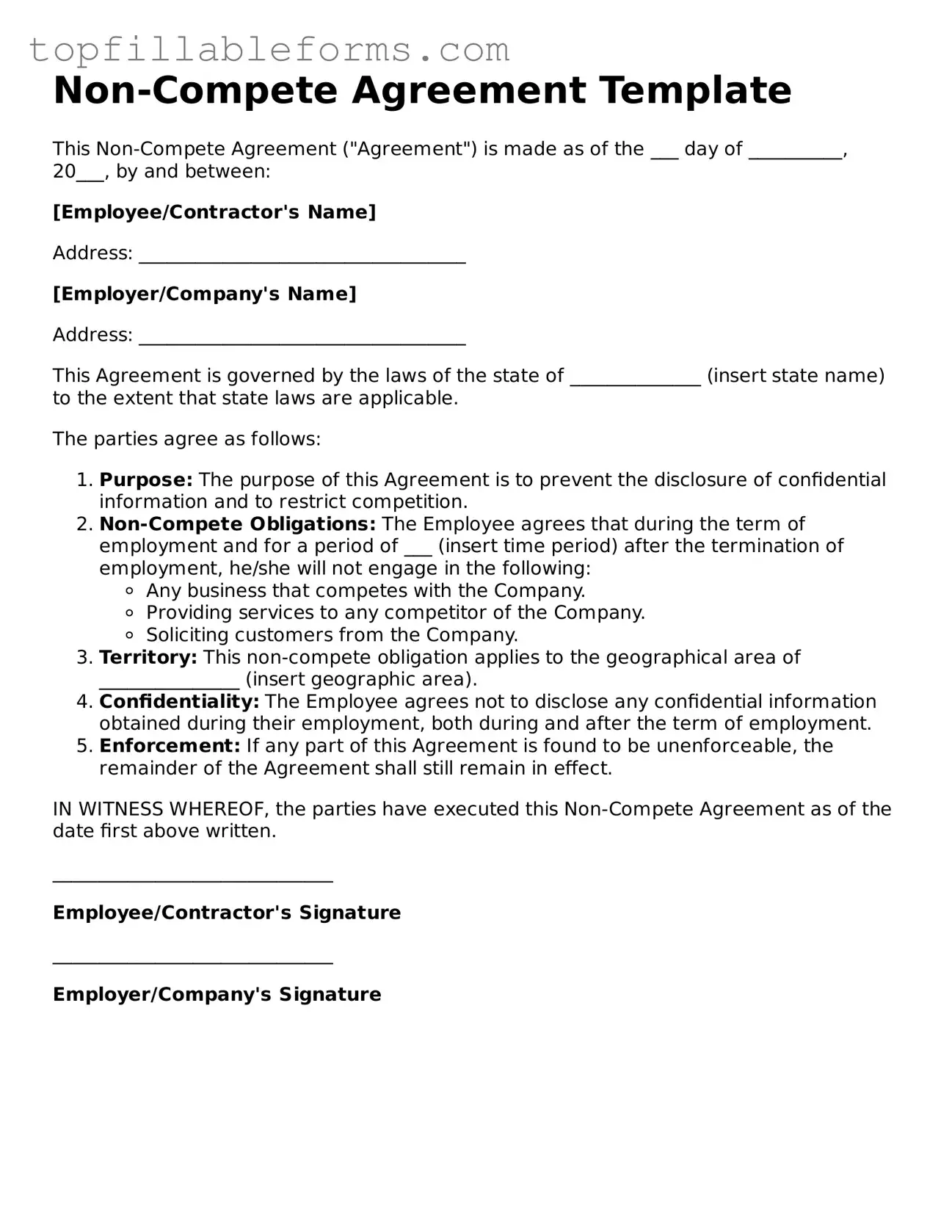Free Non-compete Agreement Form
A Non-compete Agreement is a legal document that restricts an employee from engaging in business activities that compete with their employer for a specified period after leaving the company. These agreements aim to protect the employer's business interests and confidential information. Understanding the implications of this form is crucial for both employers and employees.
Open Non-compete Agreement Editor Here

Free Non-compete Agreement Form
Open Non-compete Agreement Editor Here
Finish the form now and be done
Finish your Non-compete Agreement online by editing, saving, and downloading fast.
Open Non-compete Agreement Editor Here
or
▼ PDF File
